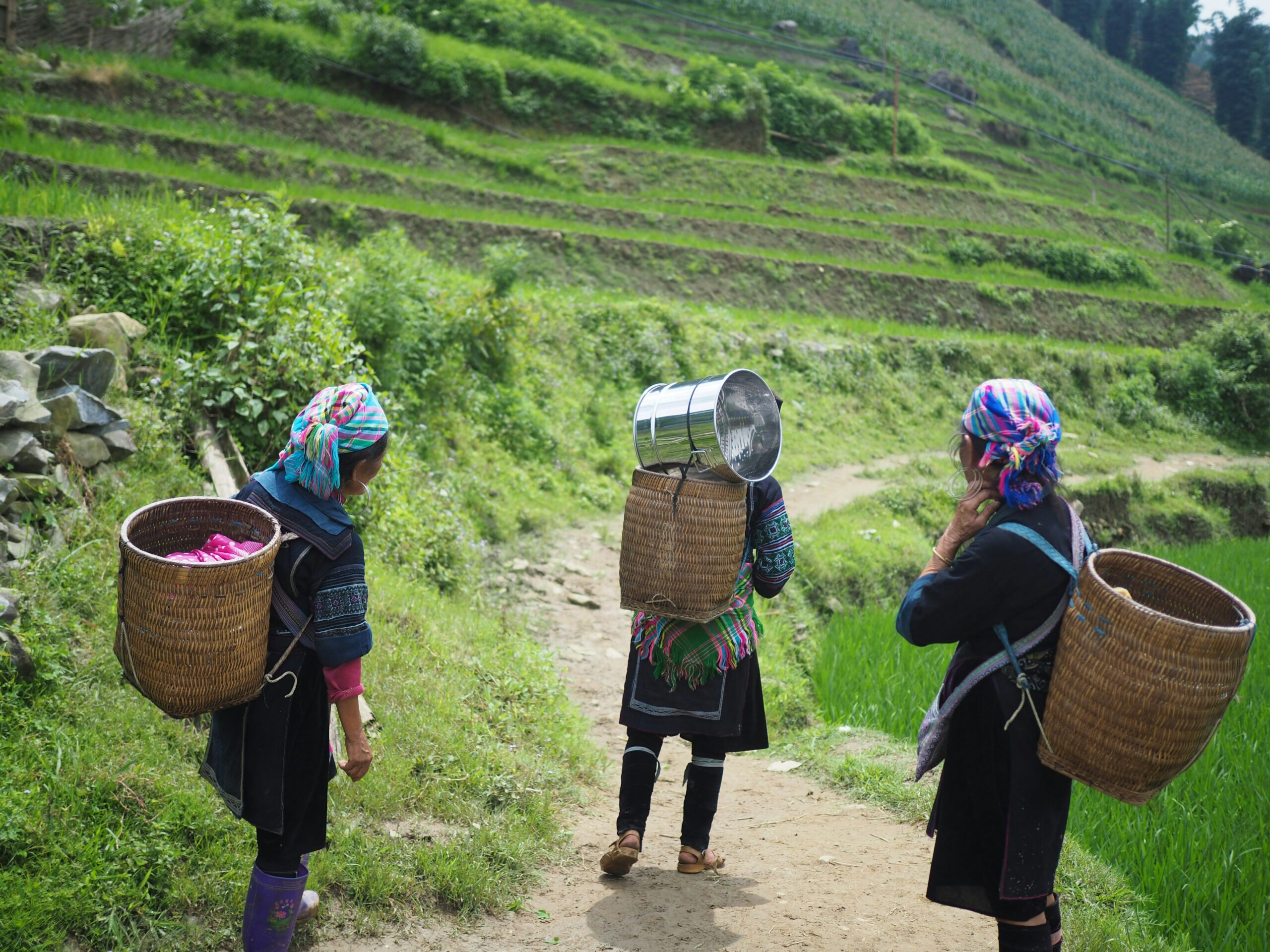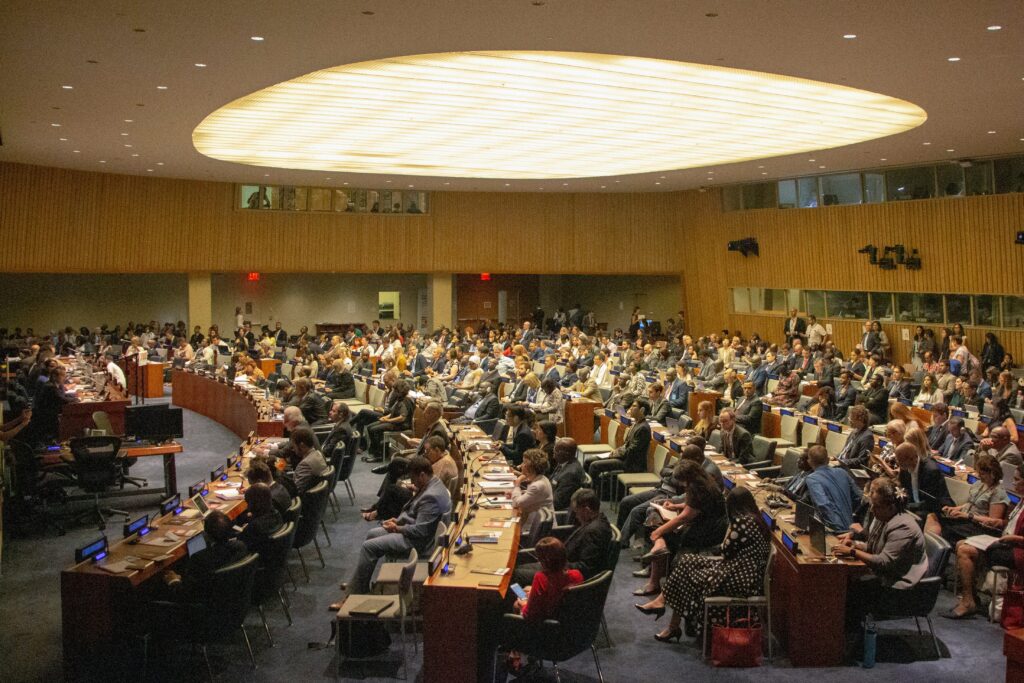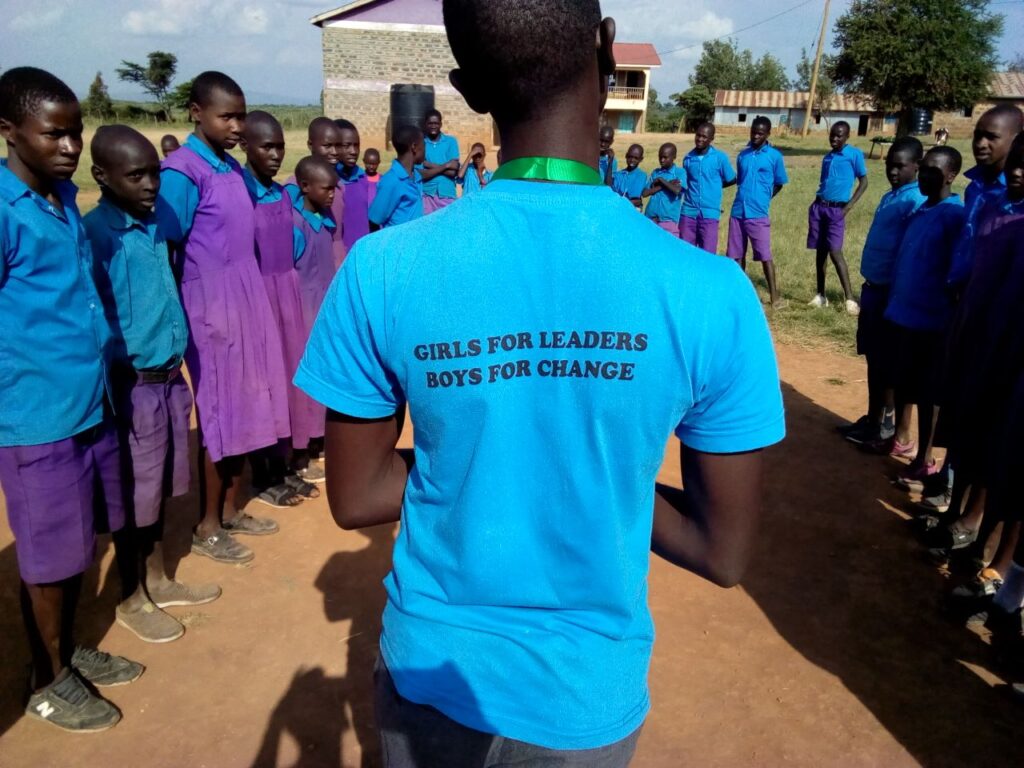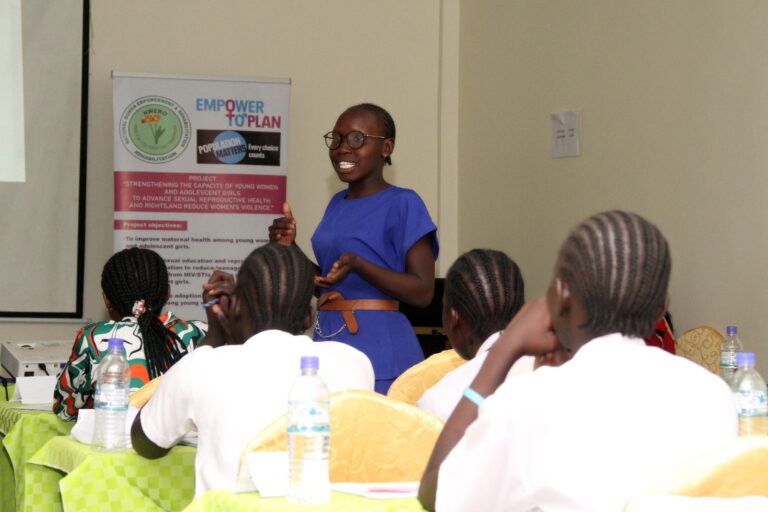
Empowering Women through Global Partnerships
Global conversations at the Commission on the Status of Women focused on how empowered women shape global sustainability. In light of recent aid cuts, the work done by grassroots organisations- like our worldwide Empower to Plan partners- is more essential, and under threat, than ever.
This International Women’s Day, the message was to Support the Supporters. It provided a powerful reminder of the critical leadership of grassroots organisations in advancing women’s rights and environmental sustainability. Population Matters’ Empower to Plan initiative works to strengthen women’s leadership by supporting grassroots, women-led groups across the globe. These groups drive meaningful change through education, advocacy and sustainable development. Strengthening partnerships (both locally and globally) is one of Population Matters’ strategic goals.
The UN Commission on the Status of Women (CSW) took place shortly after International Women’s Day and focused on the landmark Beijing Declaration on its 30th anniversary. The Beijing Declaration is one of the most progressive global frameworks in advancing gender equality. It reaffirms governments’ commitment to strengthening women’s right to health, equality, and their role in environmental leadership.
Aid cuts
CSW talks were overshadowed by the recent aid budget cuts in the US and the UK, which are already having a direct impact. As we stated in our joint letter to Keir Starmer, the reduction in aid “will cost lives and significantly damage our [the UK’s] long-term interests.”
As a consequence, organisations are now examining how to restructure around domestic resources, with foreign aid playing a smaller role. Considerations have included re-prioritising government spending and reviewing tax and social contributions.

THE ISSUES: WOMEN AND CLIMATE
Women disproportionately bear the brunt of the impact of climate change – worldwide, they carry the main responsibility for securing food, water and fuel. Agriculture is a major employer of women globally. As a result, extreme weather conditions force girls to leave school to assist their families, further entrenching cycles of poverty and inequality.
The intersection of climate vulnerability and gender inequality is compounded by barriers to contraceptive access, family planning resources, and maternal healthcare. Together they restrict women’s ability to decide their futures and adapt to climate shocks. It is crucial that women have a say in climate policies since they are on the frontline of the outcomes.
Our goal is to continue bringing sexual and reproductive education to rural communities in more [nature reserve] buffer zones, to tackle the climate crisis one step at a time. We aim to raise awareness of the link between the increase in population and the decrease in natural resources and habitats of threatened species, as well as the importance of women’s actions in relation to the conservation of the environment”
Sara Lara, Women for Conservation
Not only is inclusion crucial from a human rights perspective, but it also makes economic sense. Evidence shows that:
Enabling women’s leadership has led to better climate solutions, and when women have the same agricultural resources as men, yields increase by up to 30%.
TACKLING MISOGYNY
“Misogyny is on the rise, and so, violence and discrimination,” warned UN Women Executive Director Sima Bahous in her opening address. This powerful statement set the tone for a key theme of this year’s CSW: confronting the alarming rise of misogyny. Recent reports indicate that nearly one-quarter of governments worldwide observed a backlash on women’s rights in their countries, including discrimination, weaker legal protections and less funding for programmes. One potential driver of this is resistance to the progress women have made in education and leadership, which have been key factors in breaking cycles of inequality.
Showcasing the importance of male allyship was proposed as a crucial antidote to countering these regressive trends. “We need to present young men and boys with… a redefinition of masculinity that prioritises partnership over domination, liberation over oppression and shared humanity over rigid hierarchies.” urged Ahdithya Viseweswaran, coordinator of the Young Diplomats of Canada,
The importance of engaging boys and men in taking responsibility for advancing gender equality has been demonstrated by our partner Dandelion Africa. Through involving local men, they fostered a sense of shared responsibility and collective action. By encouraging male allyship and broad community participation, their work contributed to a lasting cultural shift—one that benefits everyone.

THE FUTURE OF EMPOWER TO PLAN
I believe we can achieve SDG [Sustainable Development Goals] only if we work together. I call upon everyone (individuals, fellow activists, CSOs, Governments and all relevant stakeholders) to join and redouble efforts”
Joan Kembabazi, Founder of Gufasha Girls
Across the world, funding cuts to SRHR programmes will reverse progress on gender equality and reproductive rights. These cuts disproportionately impact grassroots organisations and are particularly felt by marginalised communities and those living in poverty.
Many organisations support people who have faced historic discrimination and have a lack of access to essential health services, including contraception, maternal healthcare, and gender-based violence support. This leaves many women without access to vital services that enable them to make informed decisions about their bodies and lives.
Our new five-year strategy prioritises equitable partnerships with grassroots groups. We recognise that lasting change comes from the leadership of communities directly affected by the issues. Time and again, we’ve seen that when women are able to exercise their human rights – to education, health and equality- they make informed choices about their futures. Among these decisions are if and when they want children and the number and spacing of the children. This leads to better health outcomes, economic stability, and reduced environmental strain. These not only improve women’s lives but benefit their families, communities, and the environment.
While Empower to Plan still operates on a relatively small scale, it has a profound impact. By working alongside grassroots organisations, we are collectively ensuring that resources reach those driving change in their own communities. We will continue strengthening these partnerships and deepening collaboration with grassroots and community-led movements. Find out more about the programme and get involved here.



